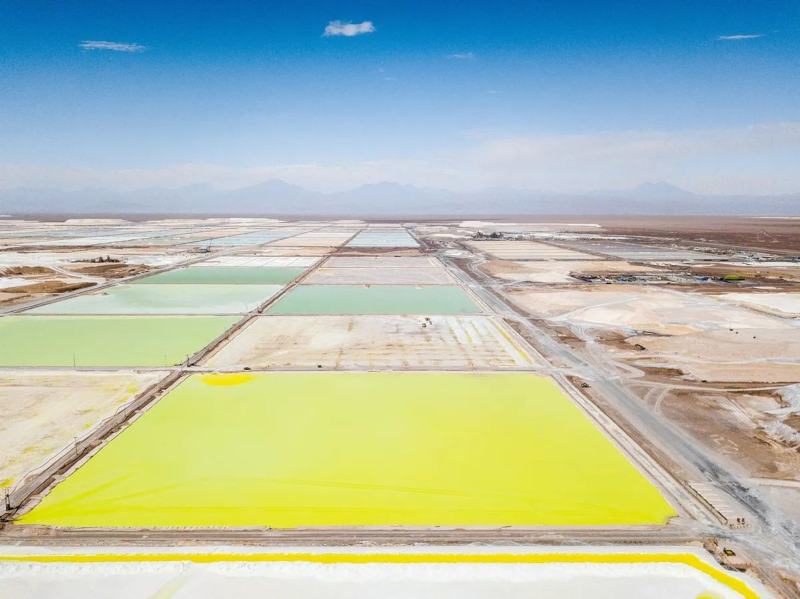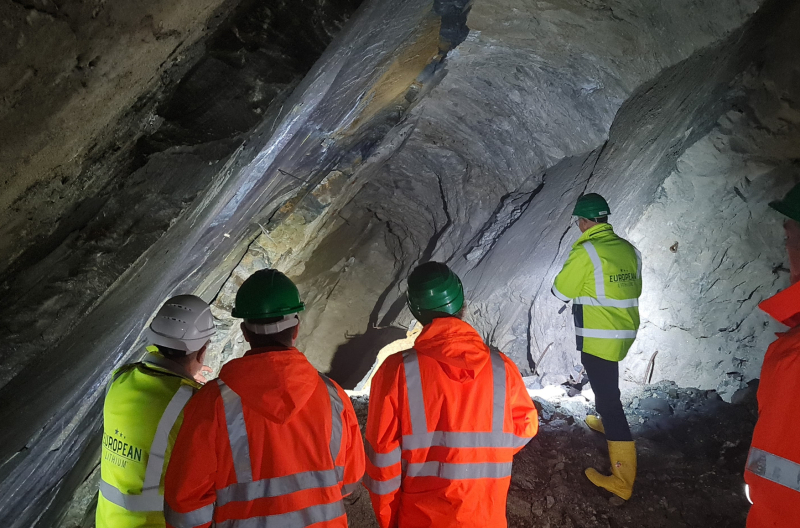A lithium deposit in Ukraine’s Kirovohrad Region. Photo: Forbes Ukraine
Russia’s state-owned nuclear energy corporation Rosatom has announced plans to fully localize lithium-ion battery production by 2030. The announcement follows the Russian military’s seizure of Shevchenko, a village in Ukraine’s eastern Donetsk Region that is home to one of the country’s largest lithium deposits. Until now, Russia had relied on lithium imports from Chile.
Rosatom plans to complete the production cycle with the help of two new “gigafactories,” one in the town of Neman in the Kaliningrad Region and another in Krasnaya Pakhra, located within Moscow’s Troitsky Administrative District. Anastasia Mikhaylova, CEO of Rosatom subsidiary Renera, which specializes in battery manufacturing, disclosed the plans during the Innoprom-2025 industrial forum.
The announcement came just weeks after international media outlets, including Le Figaro, reported that Russian forces had taken control of Shevchenko and its nearby lithium deposit. The Ukrainian Geological Service previously estimated its average lithium oxide content at 1.24%. For comparison, Australian mineral-based lithium sites typically range from 1% to 3%.
Ukraine hosts four major lithium deposits. Two, in the western part of the country, remain under Kyiv’s control. But Shevchenko and Kruta Balka, near the Sea of Azov, are now under Russian military occupation.
Authorities from the so-called “Donetsk People’s Republic” claimed to have taken control of Shevchenko’s lithium deposit as early as January 2025. However, maps from the Ukrainian DeepState monitoring project indicate that fighting in the area continued well into the spring. In early April, for instance, Russian forces reportedly lost part of the village.
Russia currently does not mine its own lithium. Before the start of the full-scale war, its primary sources of lithium carbonate were Chile and Argentina. After the invasion began, Russia’s Ministry of Industry and Trade claimed these supplies would cease. And indeed, customs records from 2022–2023 reviewed by The Insider show no official imports of lithium from Chile or Argentina.
However, shipments from Chile never truly stopped. Even prior to the full-scale invasion, some Chilean lithium exports were re-routed and recorded as originating from Belgium. In 2022–2023, Belgium became Russia’s top listed lithium supplier, despite not producing the metal itself.
Two Belgian companies, SQM Europe N.V. and Umicore, handled these exports. SQM Europe is a subsidiary of Chilean firm Sociedad Química y Minera (SQM), one of the world’s largest lithium producers. Umicore is a major Belgian chemical and metallurgy company. The Insider reached out to both Belgian firms but had not received any response by the time of publication.
Umicore ($12.5 million), SQM ($25.1 million)
Umicore ($7.5 million), SQM ($71.2 million)
Umicore ($5 million), SQM ($20.7 million)
Umicore ($22.8 million), SQM ($5,3 million)
Umicore accounted for $5.5 million; SQM-related entities are not listed among the recipients of the lithium hydroxide.

Chilean companies Albemarle Limitada and SQM are listed in Russian customs data as key suppliers. Along with the U.S.-based FMC Lithium, they dominate the global lithium market. In a written response, the Chilean company SQM told The Insider that it adheres to “all international trade embargoes and sanctions.” The statement elaborated:
“While the terms of our contracts are confidential, we can confirm that SQM has historically partnered with a Russian toll conversion partner to supplement SQM’s own LiOH conversion capacity. These operations have ceased. By the end of next year, we will have increased our capacity in Chile to convert Lithium Carbonate to Lithium Hydroxide by nearly 15 times since 2010. To meet market demand during this period, we worked with a Russian partner to undertake toll conversion. SQM no longer exports lithium or its derivatives to Russian companies.”
Although lithium is not formally sanctioned, its importance extends beyond electric vehicles, which were the focus of Rosatom’s presentation at Innoprom. The metal is crucial to the military, aerospace, and electronics sectors. Lightweight lithium-ion batteries, for example, can be used in Russian military drones. Lithium is also critical in producing rocket fuel, armor plating, and aluminum powder — a key component in explosives.
Umicore ($12.5 million), SQM ($25.1 million)
Umicore ($7.5 million), SQM ($71.2 million)
Umicore ($5 million), SQM ($20.7 million)
Umicore ($22.8 million), SQM ($5,3 million)
Umicore accounted for $5.5 million; SQM-related entities are not listed among the recipients of the lithium hydroxide.



